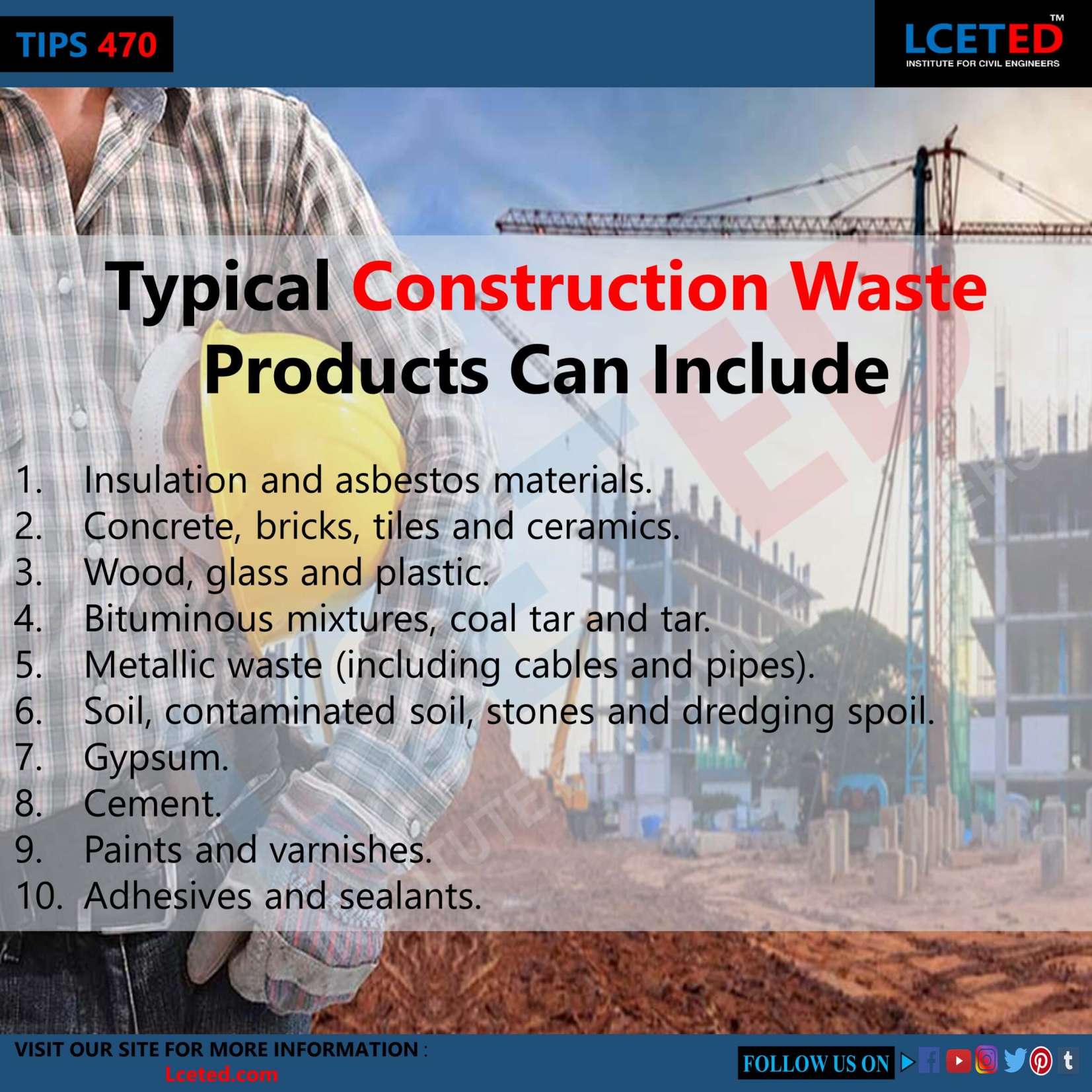Material cost is a major issue of construction, which significantly affects project cost. Some material wastes such as brick are recyclable for brickbat cob, and some cannot be reused in construction.
However,
we cannot completely prevent wastage while working, but we can control it. Each
quantity surveyor will add some permissible waste when evaluating materials to
determine construction cost.
But
that does not mean we can waste those allowable limits. These wastes are added
not only for work efficiency but also for environmental factors.
Construction works are measured according to IS code 1200, but the
allowable waste percentage is nowhere explained. There are no IS codes to
evaluate waste.
ALSO READ: ESTIMATION
OF BUILDING WASTE FROM THE CONSTRUCTION
Permissible wastes for major construction materials are listed below for evaluation according to practical experience.
|
MATERIAL |
ALLOWABLE
WASTAGE |
POSSIBILITIES
OF WASTAGE |
|
Cement |
3% to 4% |
Due to the cement
fineness, it can fly in the air when the cement mixes with other materials. |
|
Sand |
6% to 15% |
Sand
is sieved for plastering. In that process, some coarse sand will be ignored
during sieving and some particles will fall off during transportation. |
|
Coarse Aggregates |
6% to 8% |
The coarse
aggregates pieces may fall off during transportation. |
|
Tile |
1 to 2% |
Tile
wastes rarely occur. Tiles can break during transport and may break during
work. |
|
Granite |
8% to 12% |
Granite
wastes rarely occur. Granite can break during transport and may break during
work. |
|
Reinforcement Steel |
4.5% to 6% |
Cutting and bending process of steel
for reinforcement causes steel wastages,
NOTE:
Steel wastages can be used by many ways. When the steel length is below
1000mm, then it is considered as wastage.
|
|
Structural Steel |
12% to 15% |
Structural wastes occur on fabrication work like
cutting and bending steel plate or sections. |
|
Bricks |
3% to 4% |
During the transportation of bricks
causes brick breakages. It is deliberately divided into two pieces for ease
of work. |
|
Filling Soil |
4% to 5% |
During transportation and filling causes soil
particles mayfly. |
|
Paint |
3% to 4% |
The paint
may fall off when applied to the wall, but proper work behaviour can control
it. |
|
Wood |
5% |
The piece of wood is carved for a smooth surface
finishes and is properly fixed on doors or windows. |
|
Concrete |
1% to 5% |
When pouring concrete in the shuttering area causes
concrete wastage, but good workmanship can control it. |
|
Mortar |
1% to 2% |
While applying mortar on the wall cause wastage in
mortar. |
|
Shuttering Board |
6% to 7% |
The shuttering boards are carved or cut for concrete
works. It can be controllable |

HOPE
YOU LIKE THIS ARTICLE FOLLOW US MORE UPDATES









Good morning everyone
ReplyDeleteI have little doubt about raw materials in construction sector, I ordered msand vehicle from crusher, they delivered msand vehicle with invoice copy and net weight qty with their own weighbridge qty so that I cross check the qty with my local weighbridge qty.the difference is Sometimes small sometimes very huge, my question here is how much limits are acceptable and what are the limits to debit note for reduced Qty.